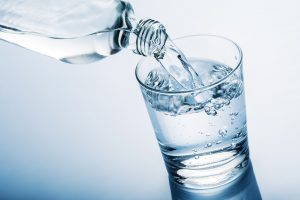 Do you spend most of your time indoors? Does your job involve sitting at a desk all day seeing only the light from your desk lamp? If you do work indoors often, do you find yourself getting easily tired, maybe having joint aches and pains, or trouble controlling your blood glucose levels? A recent study has found that your office job could be robbing you of the sunshine vitamin D and may be in turn causing a vitamin D deficiency.
Do you spend most of your time indoors? Does your job involve sitting at a desk all day seeing only the light from your desk lamp? If you do work indoors often, do you find yourself getting easily tired, maybe having joint aches and pains, or trouble controlling your blood glucose levels? A recent study has found that your office job could be robbing you of the sunshine vitamin D and may be in turn causing a vitamin D deficiency.
Vitamin D is a fat-soluble vitamin seen in very few foods such as:
- salmon
- tuna
- dairy products
- egg yolks
- fortified cereal products
Therefore, most of the vitamin D your body absorbs is likely coming from sunlight or from supplements. However, if you are mostly indoors during your day, you may be missing out on the health benefits of vitamin D. Some of the functions of vitamin D include bone strength, immune function, and reduction of inflammation. Therefore, when you do not have enough vitamin D in your body, you may have increased risk of chronic diseases such as obesity and diabetes. This is because such chronic diseases stem from inflammation in the body.
A recent study in the journal BMC Public Health looked at 71 previous studies and found vitamin D deficiency in over three-fourths of shift workers and indoor workers. In addition, over two-thirds of health care students were vitamin D deficient. Furthermore, even nearly half of outdoor workers had vitamin D deficiency. They think that use of sunscreen and limited outdoor time may be causing such a high rate of vitamin D deficiency. However, researchers also warn people of the risks of skin cancers from too much exposure to sunlight. Therefore, vitamin D supplements are an option for those who are low in vitamin D. Most adults should get around 600 IU vitamin D daily. Your doctor however may suggest more if they feel you may be more at risk for low vitamin D.
Another way you can get vitamin D is through a supplements such as Osteovent from Vita Sciences. Osteovent not only contains vitamin D3, but also bone health calcium and magnesium. This formula, which also contains vitamin K and boron, has been shown to promote bone strength.
-written by Staci Gulbin, MS, MEd, RD, LDN
Sources:
Medline Health News (June 22, 2017) “Could Your Job Rob You of Vitamin D?” https://medlineplus.gov/news/fullstory_166833.html
National Institutes of Health (February 11, 2016) “Vitamin D” https://ods.od.nih.gov/factsheets/VitaminD-HealthProfessional/
 reflux occurs for twice a week for more than a few weeks. Uncontrolled GERD can lead to respiratory problems or conditions such as esophagitis, which is an inflammation of the esophagus.
reflux occurs for twice a week for more than a few weeks. Uncontrolled GERD can lead to respiratory problems or conditions such as esophagitis, which is an inflammation of the esophagus. and keep a healthy weight for life.
and keep a healthy weight for life. disease risk. These rules include:
disease risk. These rules include: weigh 150 pounds, then you are suggested to drink 75 ounces, or about 9 and a half cups of fluid a day. Tea, coffee, juice, fluid from fruits and veggies, as well as broths also count towards fluid intake. However, caffeinated drinks such as coffee and cola also act as diuretics since caffeine is a stimulant; therefore these types of fluids can actually dehydrate you if consumed in excess.
weigh 150 pounds, then you are suggested to drink 75 ounces, or about 9 and a half cups of fluid a day. Tea, coffee, juice, fluid from fruits and veggies, as well as broths also count towards fluid intake. However, caffeinated drinks such as coffee and cola also act as diuretics since caffeine is a stimulant; therefore these types of fluids can actually dehydrate you if consumed in excess.